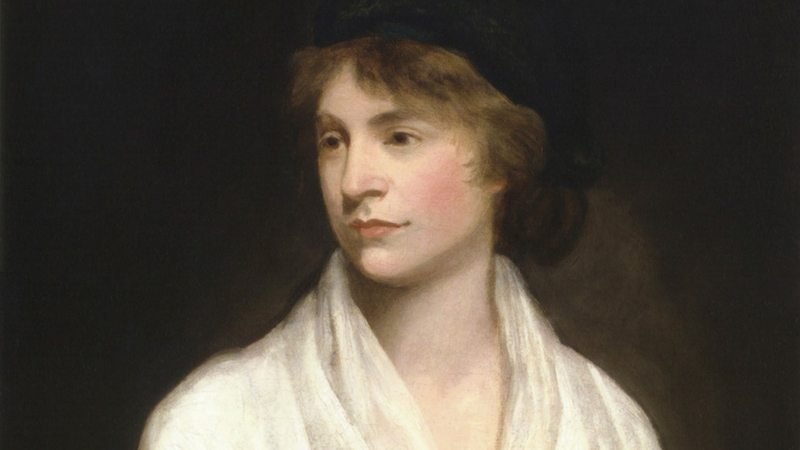Vindicated! The Philosophy of Mary Wollstonecraft
Episode #4 of the course Women in philosophy by Will Buckingham
Today, we are moving on to a period of great upheaval in European history. The French Revolution brought violence, social change, and bloodshed. But it was also a time of huge intellectual ferment, not only in France but also across the English Channel in Britain. This was the context in which Mary Wollstonecraft (1759-1797) wrote A Vindication of the Rights of Woman, one of the major works in this history of feminist philosophy.
About Mary Wollstonecraft
Wollstonecraft was a remarkably versatile writer, whose work spanned philosophy, fiction, travel writing, and current affairs, but Vindication is perhaps her most influential and best-known work. It was a response to the Report on Public Instruction (Rapport sur l’instruction publique) written in 1791 by Charles Maurice de Talleyrand-Périgord (whose name is usually shortened just to “Talleyrand”), which argued for publicly funded education but crucially insisted that only boys should be educated in the public sphere, while girls should be educated “in the paternal home.”
Women’s Subjugation
Wollstonecraft’s Vindication was dedicated to Talleyrand; it was also a strong critique of his thinking. In the opening of the book, Wollstonecraft says, “Men, in general, seem to employ their reason to justify prejudices […] rather than to root them out.”
A Vindication of the Rights of Woman aims to root out these prejudices through what is a fiercely freewheeling argument. Wollstonecraft writes with astonishing verve. One of the major problems she identifies, and argues against, is the vicious circle by means of which men hold on to power. Men, she argues, restrict the education and opportunities of women. Then they argue that women lack the capacity to engage in public life. They use this as a further justification for restricting women’s education and opportunities. By means of this vicious circle, men have argued women are naturally inferior, whilst also justifying the male grip on power.
In the face of this, Wollstonecraft argues that the dominance of men is not necessarily the result of any natural superiority, but instead of women’s subjugation. She writes, “It cannot be demonstrated that woman is essentially inferior to man because she has always been subjugated.”
The Value of Education
For Wollstonecraft, the ideal society is one that is governed by reason, virtue, and a concern with knowledge. In Wollstonecraft’s day, women were often considered to be naturally deficient in reason. This assumption justified the claim that they should be being barred from taking their full place in society or in the public realm. For Wollstonecraft, this was not just a profound injustice but also a problem standing in the way of bringing about this ideal of a society governed, first and foremost, by reason.
The solution to this problem, for Wollstonecraft, was this: an education system in which girls and boys could be educated equally and together. She writes that if women are not educated to “become the companion of man”—and here, she means on a basis of equality of rights—then this will “stop the progress of knowledge and virtue; for truth must be common to all.”
Wollstonecraft’s Legacy
Mary Wollstonecraft’s book was an immediate bestseller, not just at home but also throughout the rest of Europe. However, her influence waned after her death when her husband, William Godwin, unadvisedly published his memoirs revealing details of her unorthodox private life. It was not until the following century that her book became more widely read again. A Vindication of the Rights of Women is now considered one of the founding texts, perhaps the founding text, of feminist philosophy and thought.
In the next lesson, we move on to the 20th century, to explore another philosopher who tackles questions of gender inequality head on: Simone de Beauvoir.
Further learning
Podcast: There’s a great podcast about Wollstonecraft on The History Vault.
Reading: The full text of A Vindication of the Rights of Woman by Mary Wollstonecraft
Recommended book
For those who want an in-depth look at Wollstonecraft’s work, try Vindication: A Life of Mary Wollstonecraft by Lyndall Gordon
Share with friends

